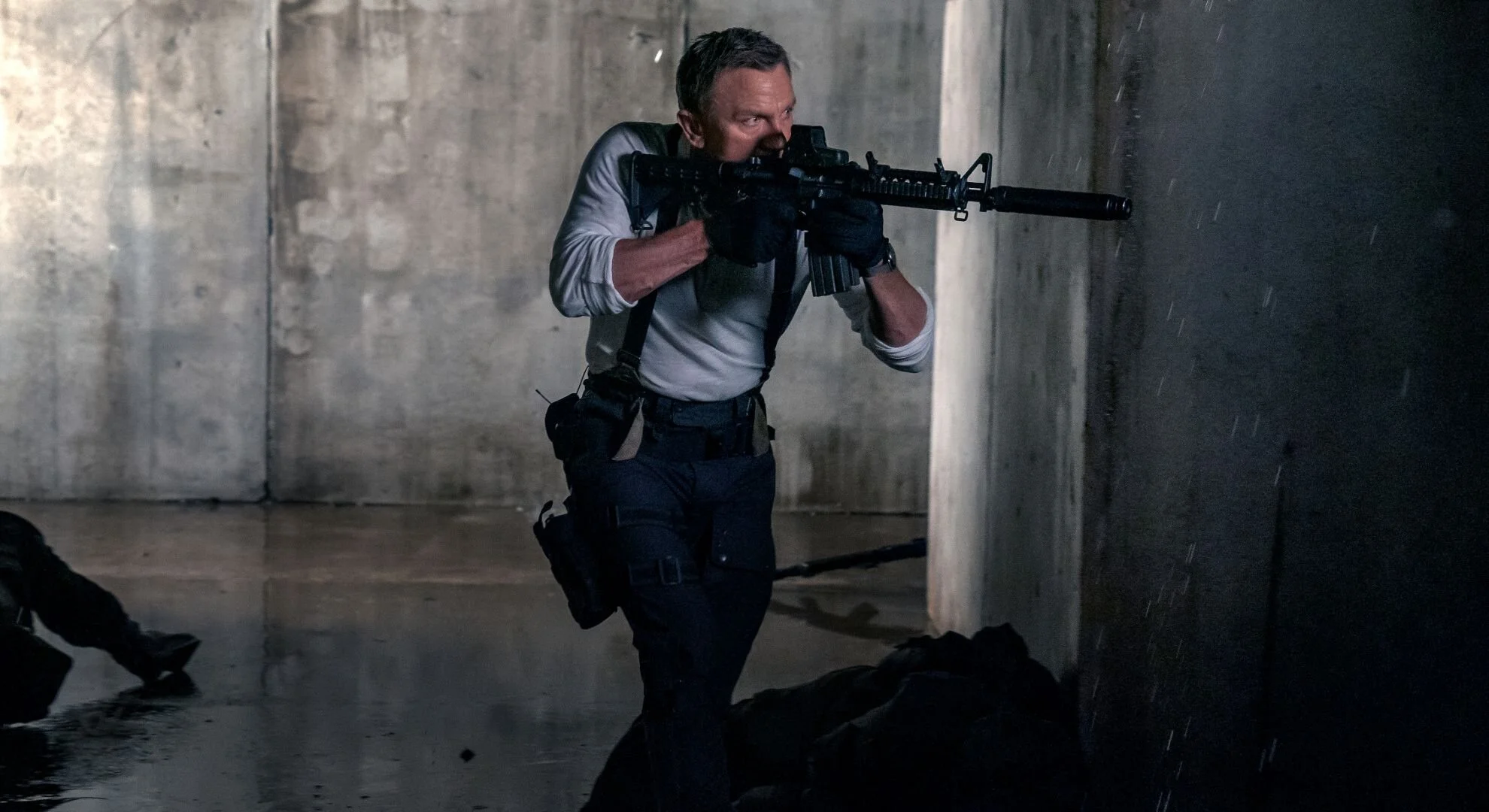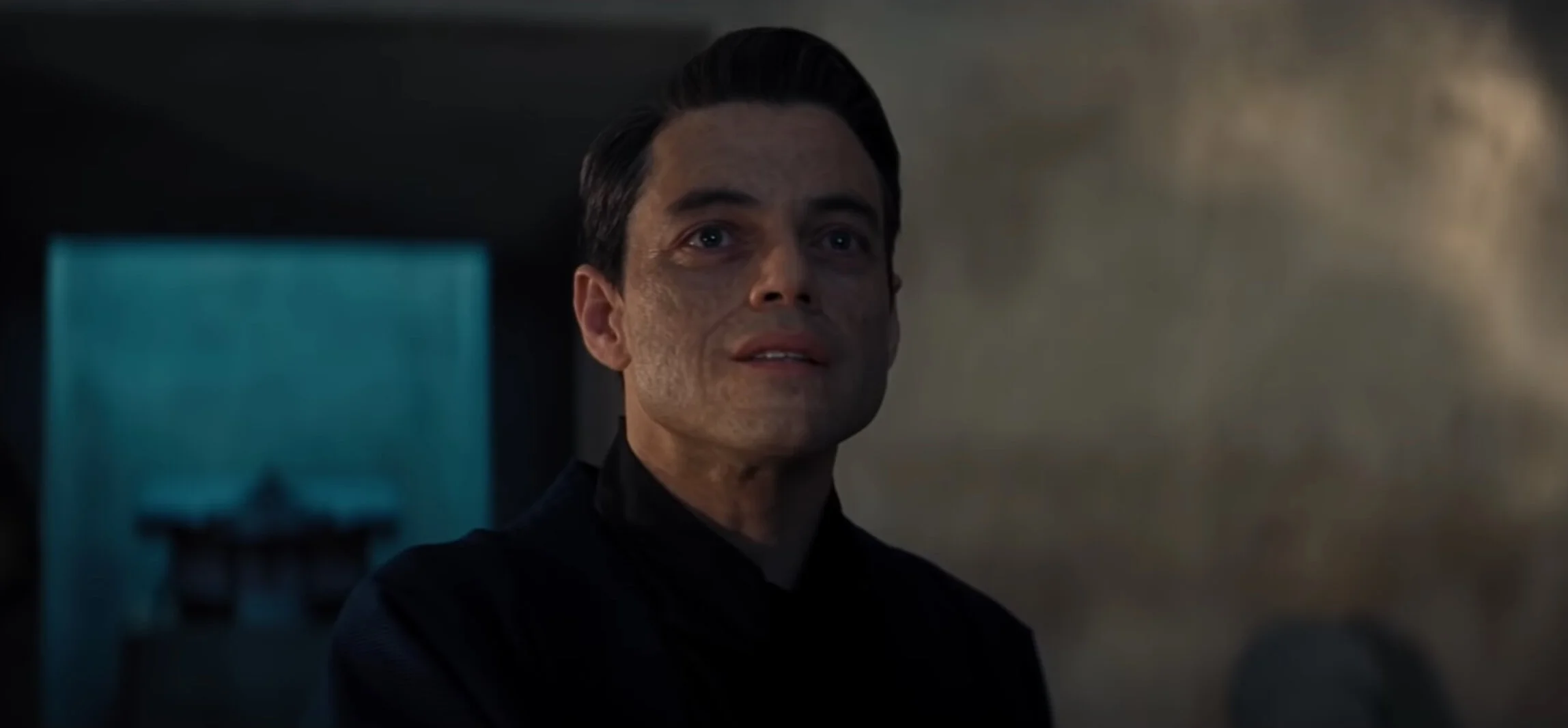The final James Bond film in Daniel Craig's fifteen year era has come to an end, but is it the thrilling conclusion we fans have been hoping for, or is it doomed to fall into obscurity with the rest of the ill-received spy movies in the recent decade?
Originally, I was extremely hyped for No Time To Die. The trailer promised a star-studded cast, beautiful set pieces, and a return to form in classic Bondian tropes. Toting a 2 hour and 43 minute runtime, this film was poised to end the franchise in a fantastical way.
After watching the movie, it did notably end the franchise in a completely different way than what you would normally expect...but after a few days of mulling it over I have mixed feelings over the entire thing. On one hand, they attempted to inject new flavor into a 25+ movie franchise, but on the other hand, new experiments tend to yield flawed results. And this film, is decent despite all these flaws. Director Cary Fukunaga essentially pulled a The Last Jedi and to a lesser extent The Rise of Skywalker on us, but at least the attempt was admirable. And if you don't already understand where I'm getting at, let me explain.
Of course, spoilers ahead.
A Slapdash Story
Just like the other films in Craig's tenure, this is a direct continuation of the overarching storyline that continues after the events of Spectre. The plot of No Time To Die begins with James Bond (Daniel Craig) and Madeleine Swann (Lea Seydoux) enjoying each other's company in Italy, but Madeleine is haunted by the memory of Lyutsifer Safin (Rami Mailk). This in turn causes Bond to distrust his lover and leave her for the next five years in an attempt to move on from his broken heart and MI6, until he is pulled back by Felix Leiter for one final mission. Familiar faces are trotted out for their final cameos, and the threat of a nanobot virus that targets specific blood types (a very spot on tie-in to the real world pandemic) looms above them.
A very Bondian premise, but the actual delivery leaves much to be desired.
They introduce elements of the past that come back as deadly secrets, but to be quite honest, Safin's revenge came back as awkward and too convenient. This point is echoed over and over again by characters in a vague attempt to add a layer of mystery to Safin's motives, only for the payoff to falter in the end. I left the theater a bit confused by the central conflict as they said a lot without saying much at all. Safin's motive to save Madeline as a child was never fully explored, and seemed to be thrown out the window later on. M (Ralph Fiennes) was secretly working with Spectre on the Heracles Project for some reason to help rid the world of evil. Ernst Blofeld was somehow able to communicate with his underlings and run an empire from a maximum security prison, the list goes on and on.
The direction of Bond himself was not one I can say I am truly a fan of, if I am to be honest. He undergoes a transformation from suave and debonair, into one akin to Moore's depiction. He told a bit too many jokes and the confidence he oozed was reined in as an attempt to humanize and create a fatherly figure in Bond that has never been seen before. I get that, and it works near the ending (which I will touch on later). Now the mileage may vary from person to person, but I prefer my Bond to ooze charisma at a constant rate, and this one did not provide it.
Ineffective Villain and Side Characters
Lyutsifer Safin is a glorious name for a villain, but Rami Malik's talents were ultimately wasted due to lack of screen time and a terrible vision. Safin has all the trappings to be the ultimate Bond villain, with his distinguishable scars and island lair, but the writing fell too short, rendering him as nothing more than an inept parody of Dr. No. We as an audience are left to wonder what his goals were and why exactly he wanted revenge years down the line.
Safin eliminates Spectre and targets his sights on the world at large. He kidnaps Madeleine because he feels a kindred spirit inside her, but why now? Why after all these years does he finally reveal his feelings?
At a later point he captures Mathilde, the love child of Bond and Madeleine and uses her as a bargaining chip. Within ten minutes and out of nowhere, he sets her free because she bit him once. Why would a megalomaniac do such a thing? Why have her held hostage in the first place? It’s questionably action choices like this that keeps the audience from taking it too seriously, and thereby undermining the villain’s overall effectiveness.
Also, Ernst Blofeld returns. But he is promptly killed by nanobots through contact from Bond, who was used as a vector. Another wasted opportunity, though his lackluster performance in this film as well as the previous one made his death more palpable.
The new 007 has some snappy remarks and to be a strong, black female lead was an interesting and welcoming addition, but unfortunately Lashana Lynch wasn't given much to work with as this foil. Every time she was on screen she was regulated as a "helper" to the original, doing grunt work and staying as far out of the limelight as physically possible. To be fair, it is Craig's last outing, so I understand why her role was diminished, but it was a shame nonetheless.
The only saving grace was by Paloma who is portrayed by Ana De Armas of Blade Runner 2049 fame as Joi (a film so good I wrote multiple articles on it). Despite not being a woman who was bedded by Bond, she remains one of my favorite Bond girls to date. The action sequences and charm she brought to the silver screen in the short amount of time she had kept me wanting more, and to know that it won't happen in the future is quite saddening. She was quite underutilized Unless they decide to do a Paloma spin-off, which in that case, sign me up!
Subverting Expectations (Why?)
Now this part may be considered controversial to most, but I understood why they did it and in the end it did pay off for me. What I am referring to is Bond's death. Bond being infected with the nanobots that were contagious to Madeleine and Mathilde was a bit contrived, but effective as it gave us a glimpse of Bond at his most mature in the final stages of his life. There had to be a reason for him to sacrifice himself and at least he did it to save thousands whilst giving us catharsis in knowing that his former lover and child get to live on.
A death of a Bond has never been seen before in this franchise, as he has always had the right gadget and quip to save his skin, but knowing and seeing a permanent end puts a definitive closure on his narrative and will set up for future Bonds to take the mantle. Obviously, many fans will be enraged to see their idol killed off in such a fashion, but to me it was a necessary decision and one that was not made lightly. The only pointless death was Felix Leiter (Jeffery Wright), who was brought back out of retirement only to be shoehorned in a faux brotherly relationship with Bond, only to be killed halfway as an attempt to pull on the audience's heartstrings.
Overall Score:
7/10
Despite all the missteps, I am impressed that Fukunaga attempted to take a chance on something different. Though the death of Bond was not something that was needed, it was a final love letter that showed that Bond isn’t some immortal being, and an actual person capable of change. He goes from a cold stoic to a loving father figure over the course of five films. I did not enjoy some of the character arcs and sloppy story beats, but the times they did revert to classic Bond, I felt myself salivate for more. Make no mistake, No Time To Die did give us something fresh, and paved the way for the next iteration of Bond films. It succeeded in closing the franchise and is definitely ranks better than Quantum of Solace and Spectre, but does not hold a candle to master classes like Casino Royale or Skyfall. Nonetheless, if you are a diehard fan like I am I still recommend you giving it a watch, just to see Daniel Craig’s Bond in action one last time.



